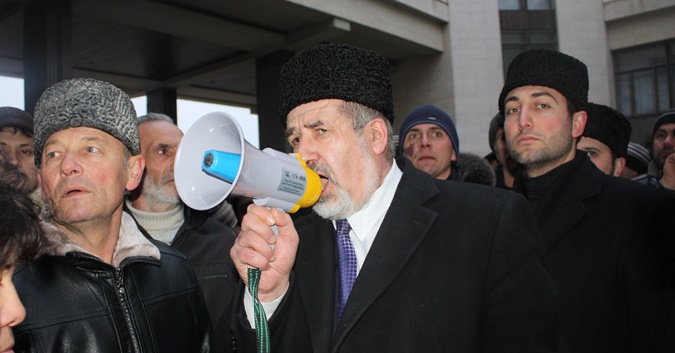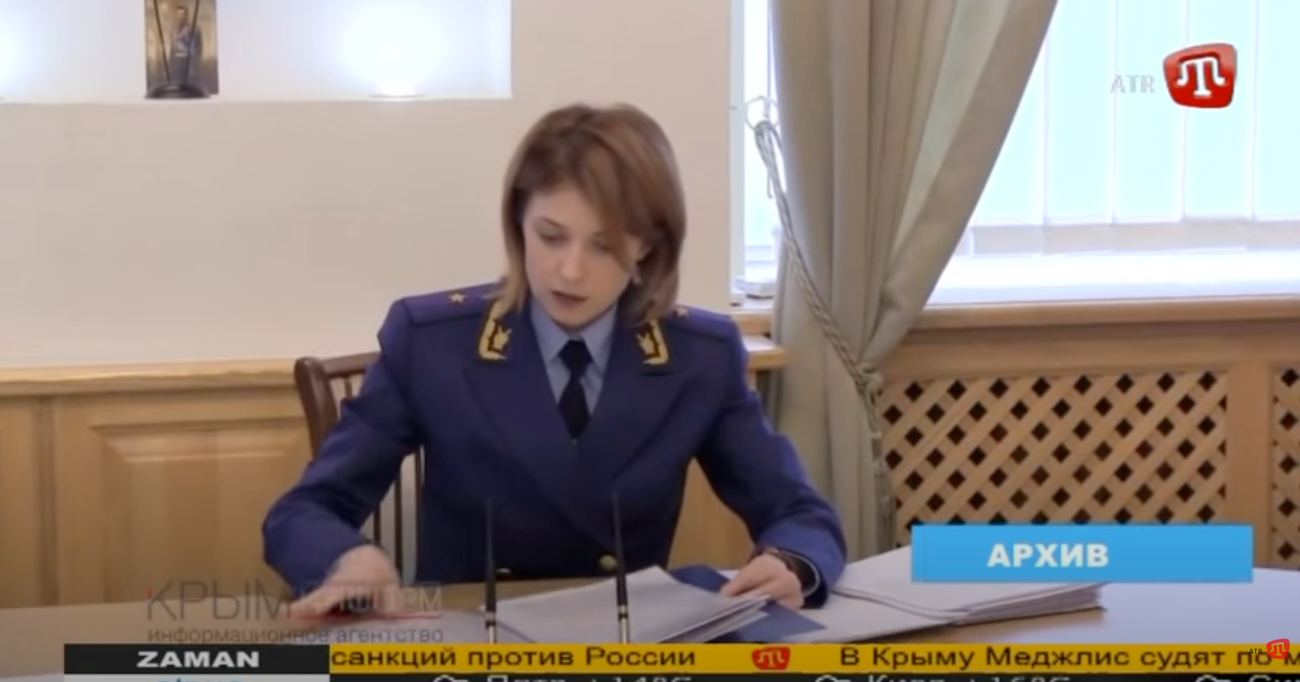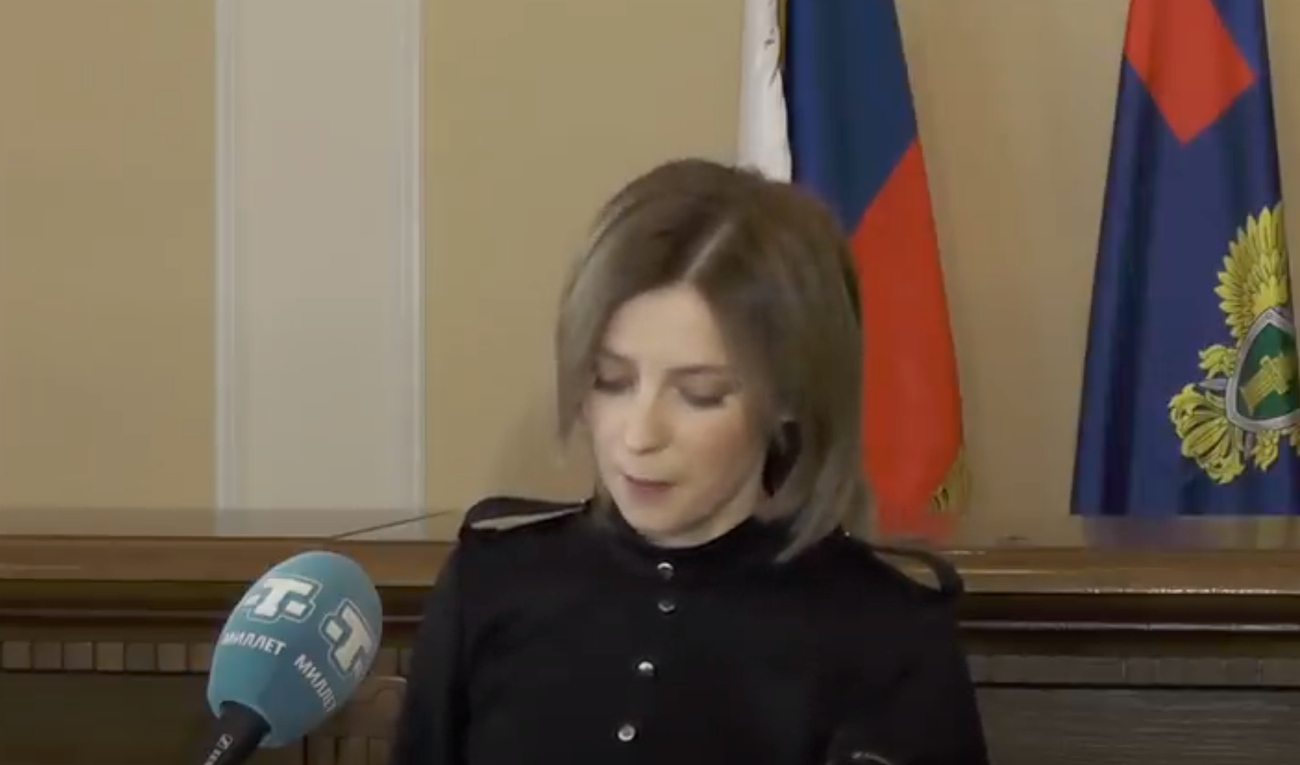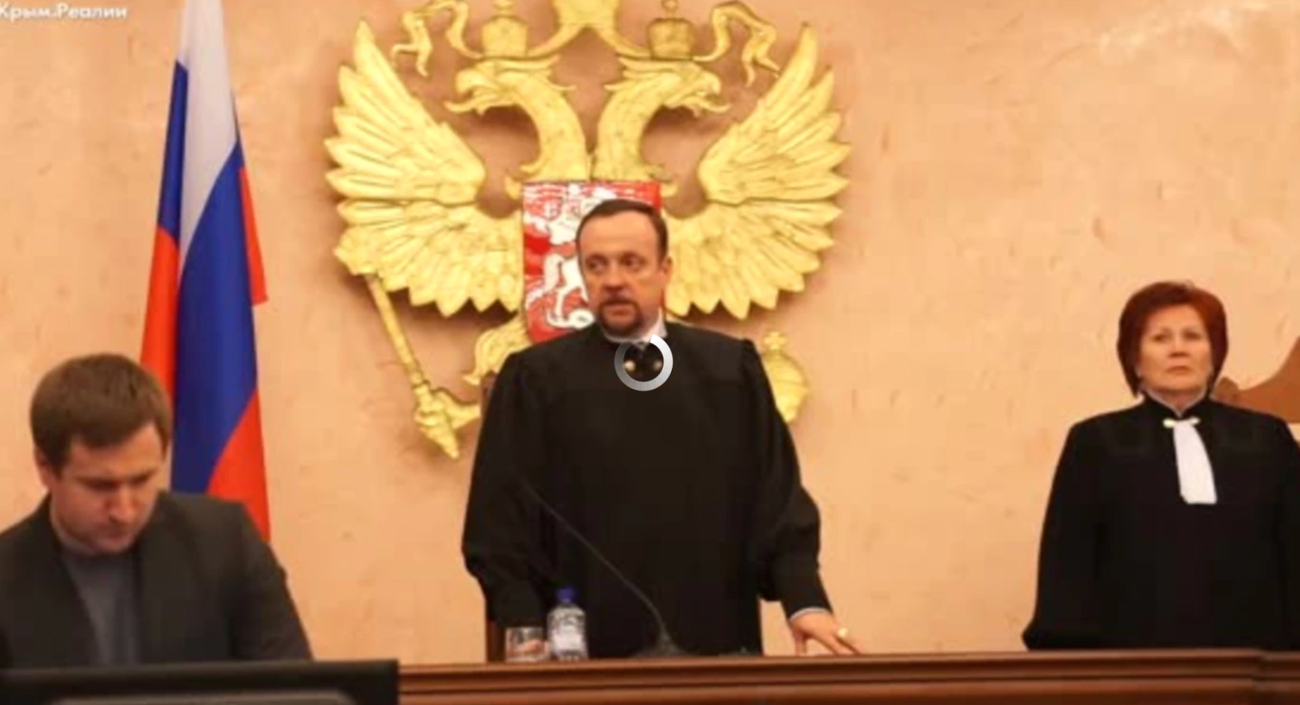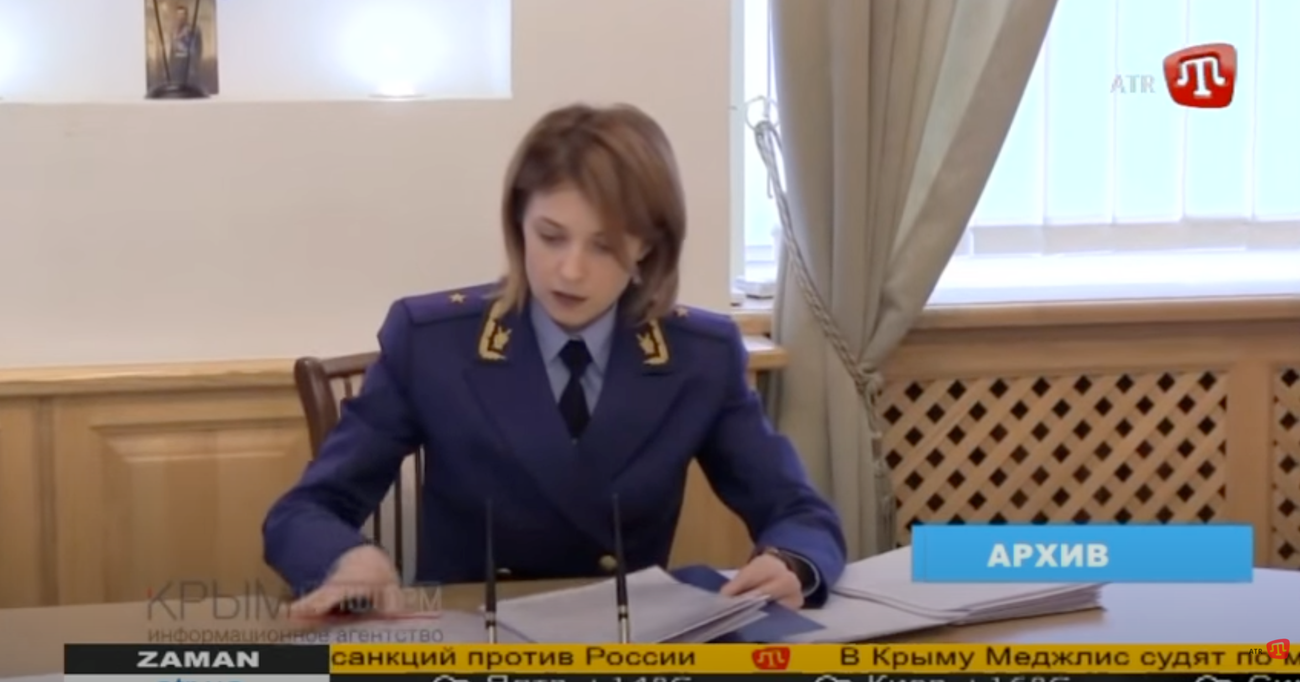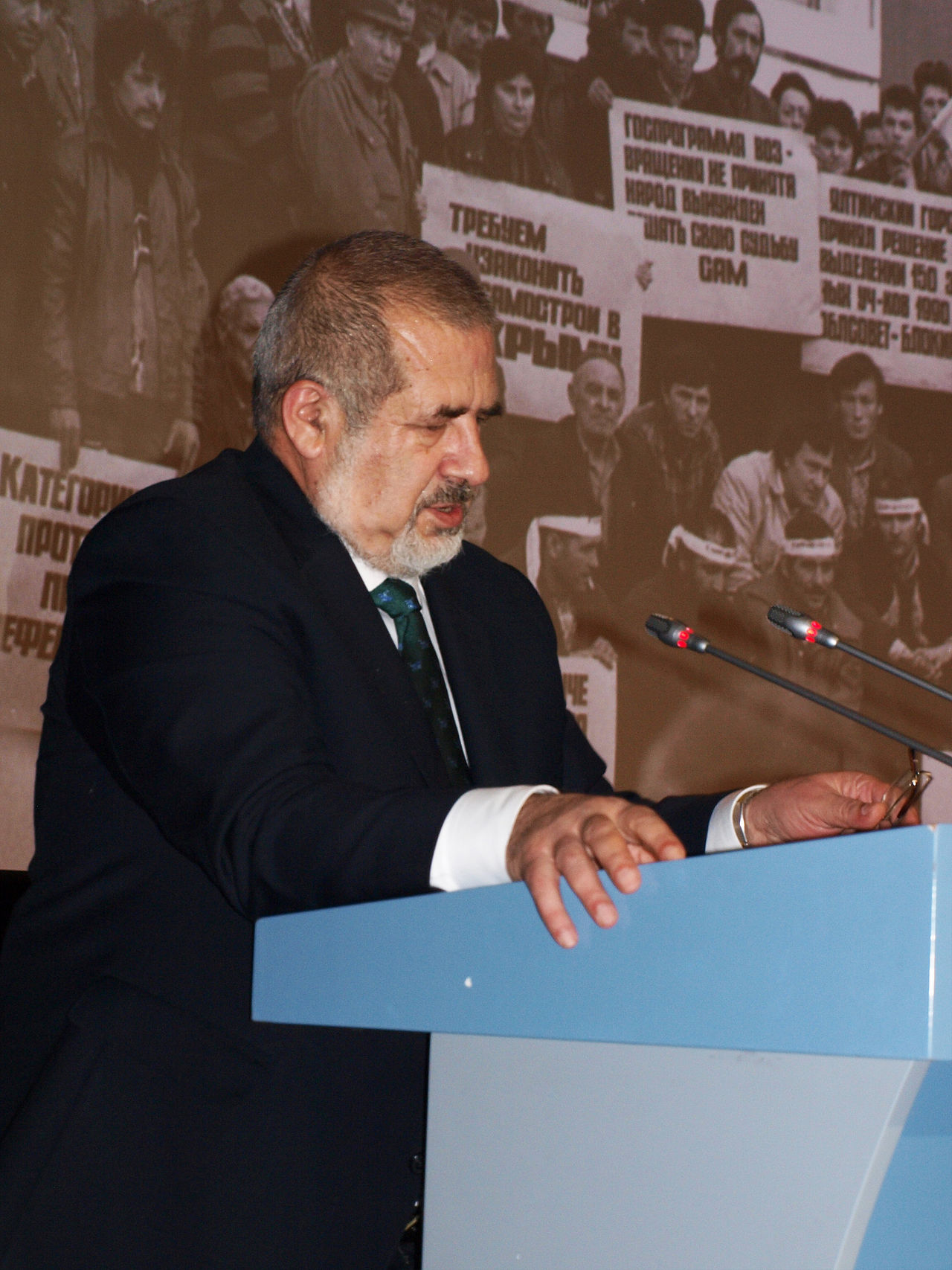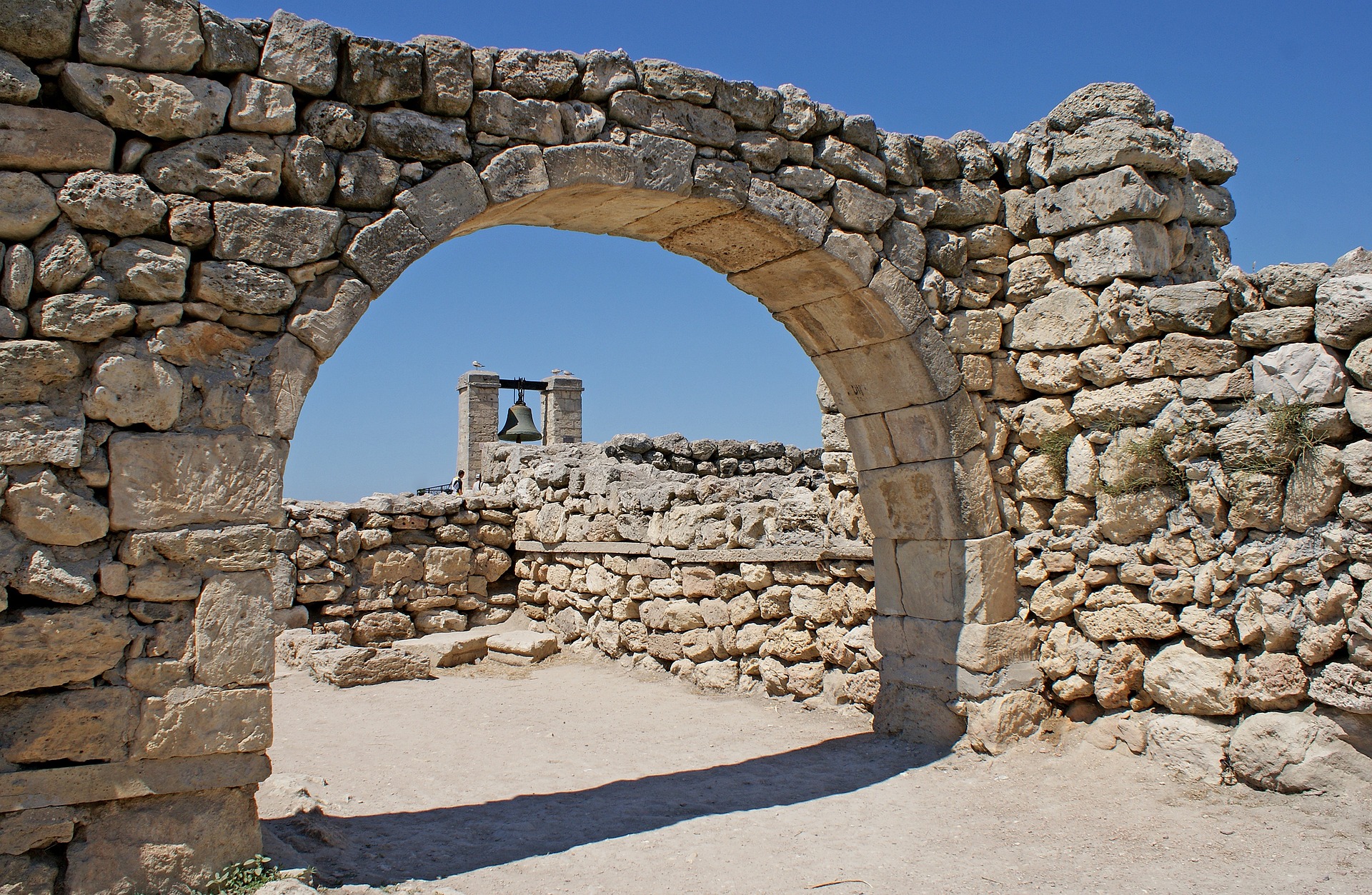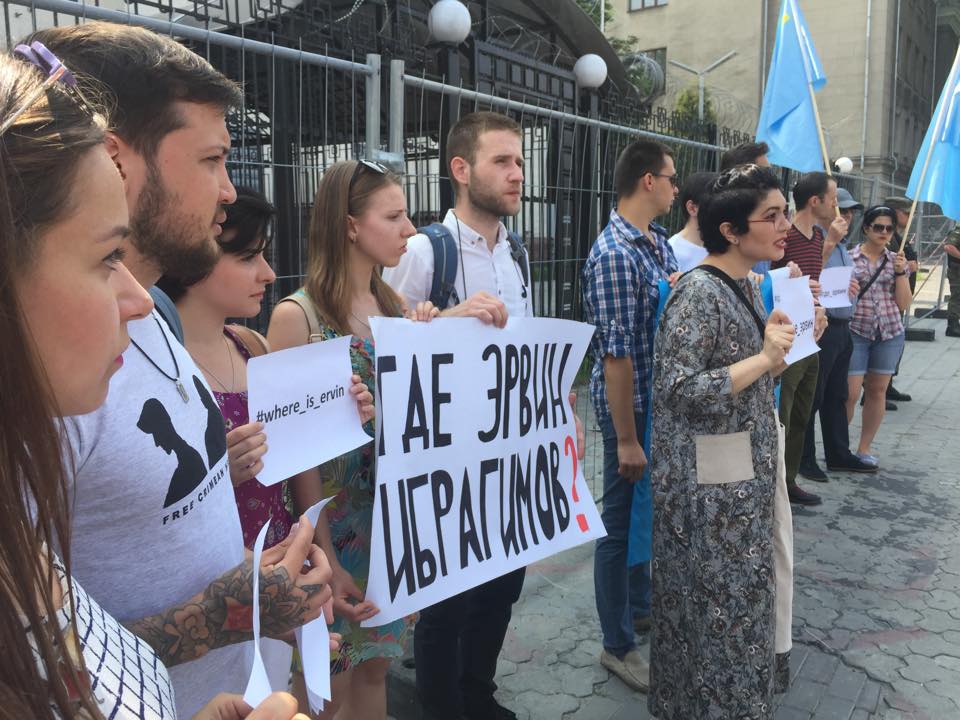By way of trumped-up political accusations, the occupation authorities would ban the activities of the Mejlis and effectively squeeze its leaders out of the territory of Crimea. The Crimean Tatar People would be deprived not only of a coordination center, but also of leaders capable of organizing the concerned public.
The ban of the Mejlis would be accompanied by formally unrelated processes, such as criminal cases against members and leaders of the Mejlis.
Refat Chubarov and Mustafa Dzhemilev have been banned from entering Crimea since 2014. The occupation authorities opened criminal cases against both leaders of the Crimean Tatar People.
On 05/29/2015, a criminal case was initiated against Refat Chubarov for public calls to violate the territorial integrity of Russia for his vocal public stance on the Ukrainian affiliation of Crimea. On 01/20/2016, the so-called "Kyivsky District Court of Simferopol" arrested Mustafa Dzhemilev in absentia on charges of "terrorism" and "undermining the foundations of statehood of Russia".
On 01/29/2015, Ahtem Chiygoz, deputy chairman of the Mejlis, was arrested. The occupation authorities charged him with organization of mass riots by way of participation in the rally on 02/26/2014 and sentenced him to 8 years in prison.
On 05/12/2016, the Russian FSB in Crimea arrested Ilmi Umerov, deputy chairman of the Mejlis. He was charged with public calls to change the territorial composition of the Russian Federation. Later, Ilmi Umerov was subjected to a compulsory psychiatric examination. He spent about three weeks in a psychiatric hospital. On 09/27/2017, the so-called Simferopol District Court sentenced him to 2 years in a penal colony. And in 2017, with the mediation of Turkey, he and Ahtem Chiygoz were released.
On 03/29/2017, the Mejlis filed a claim with the ECHR.
Under the procedural management of the Prosecutor's Office of the Autonomous Republic of Crimea a pre-trial investigation is underway in criminal proceedings on the facts of illegal persecution of the representatives of the Mejlis of the Crimean Tatar People and the illegal ban on its activity as constituting the criminal offenses under Part 1 of Article 438, Part 1 of Article 353 of the Criminal Code of Ukraine).
During the pre-trial investigation on 10/10/2018, the prosecutor's office of the autonomy indicted Natalia Poklonskaya on committing a criminal offense under Part 1 of Article 438 of the Criminal Code of Ukraine (Violation of the laws and customs of war).
Accusations of extremism and banning of the Mejlis fit the established pattern of methods and propaganda narratives of the Crimean post-communist authorities, pro-Russian politicians of the 1990s, as well as the policies of the Soviet totalitarian regime in relation to the Crimean Tatars. The extremist and aggressive occupant accused its victim of extremism and presented itself as a champion of "democracy" and "inter-ethnic peace".
 Simferopol, ul. Pavlenko, 2. Building of the so-called Supreme Court of the Republic of Crimea
Simferopol, ul. Pavlenko, 2. Building of the so-called Supreme Court of the Republic of Crimea
 2016-04-26
2016-04-26
